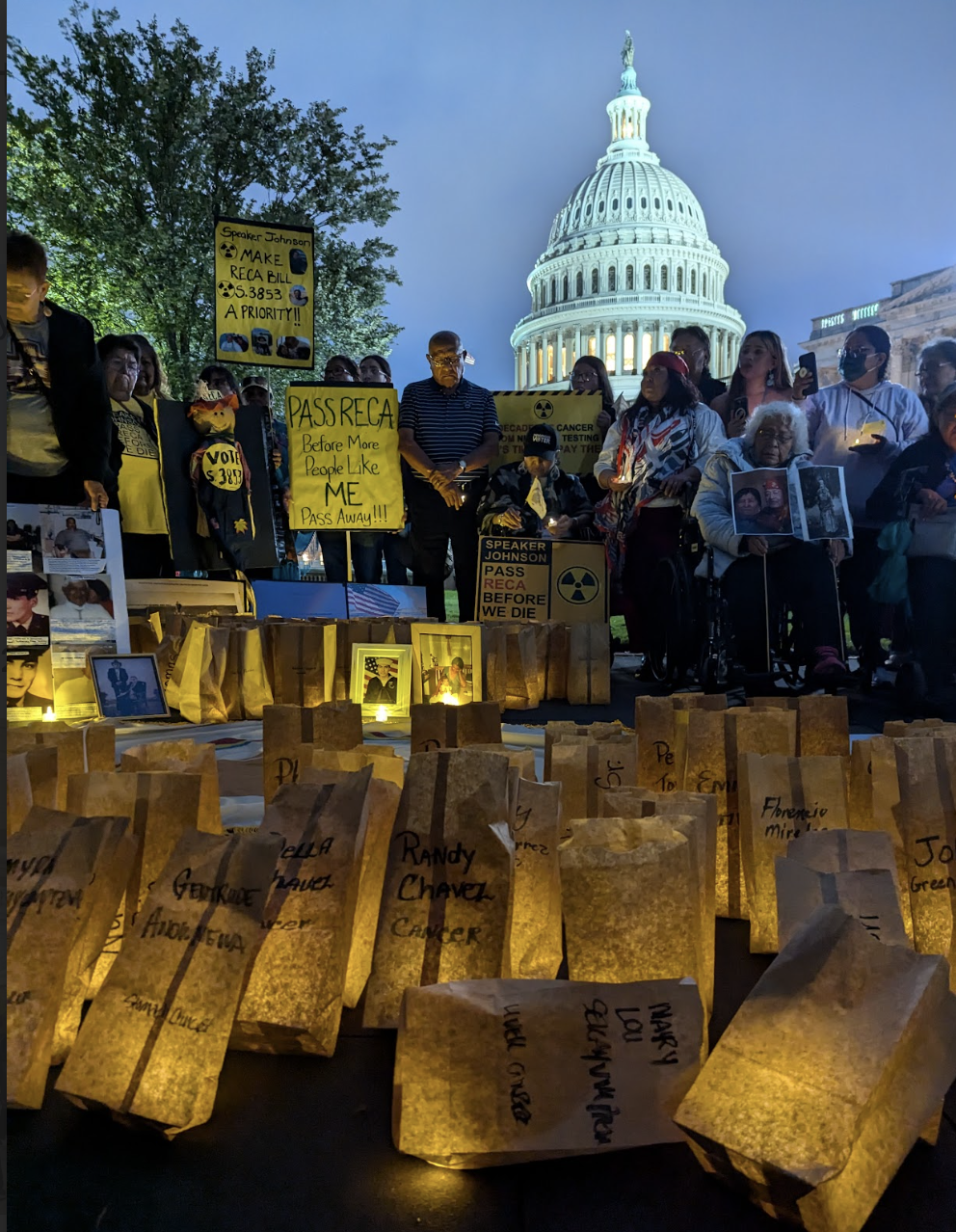
- Details
- By Elyse Wild
A government program that compensates victims of radiation exposure from federal uranium mining and nuclear testing has been reauthorized and expanded as part of the newly signed tax bill dubbed "The Big, Beautiful Bill."
The Radiation Exposure Compensation Act (RECA) addresses decades of federal uranium mining and nuclear testing that disproportionately affected Native Americans. The federal government mined nearly 30 million tons of uranium from Navajo Nation land between 1944 and 1986, while conducting nearly 1,000 nuclear tests from 1945 to 1992, primarily in the Southwest, where more than 20 percent of Native American people reside.
Thousands now suffer from radiation-related illnesses, including kidney disease, heart disease, respiratory disease and cancer.
Originally signed into law in 1990, RECA compensated qualifying individuals from $50,000 to $100,000 for a range of illnesses, depending on which category applicants fell under — miners, on-site workers or downwinders. The act expired in 2024 after Congress failed to reauthorize it, despite pleas from affected communities and advocates.
The program paid out more than $370 million to Native people over three decades, around 13% of RECA’s total payout as of July 2024.
Today, the reenacted RECA represents the largest expansion of the act to date. It increases all compensation amounts to $100,000 and expands geographic eligibility to include the entire states of Arizona, Colorado, Idaho, Montana, Nevada, New Mexico, Utah and Guam. It also includes compensation for those affected by Manhattan Project waste for specific ZIP codes in Missouri, Tennessee, Alaska and Kentucky. Previously, RECA compensation for miners was limited to those who worked in uranium mines through 1971. The period has been extended to 1990.
As well, the law authorizes $3 million per year for epidemiological studies on the impact of uranium mining on families.
In a Facebook post, Navajo Nation President Buu Nygren thanked Sen. Josh Hawley (R-Mo.), who sponsored the bill.
"I would like to extend a special thank you to Senator Josh Hawley for his tireless advocacy on securing the reauthorization and expansion of the Radiation Exposure Compensation Act (RECA)," Nygren wrote. "Senator Hawley partnered with the Navajo Nation to ensure that our longstanding priorities to provide coverage for Post-71 miners, increased compensation for recipients, coverage for downwinders across Northern Arizona and New Mexico, and the inclusion of new diseases now known to be linked to radiation exposure, such as renal cancer and chronic kidney disease. I would also like to thank our former Navajo Nation Washington Office Director Justin Ahasteen, a staunch advocate, for his advocacy on behalf of the Navajo Nation."
While the new law is welcome news to tribes, advocates and affected communities, some say it continues to fall short.
Maggie Billman (Diné) is a member of Diné RECA Sawmill Warriors, a grassroots advocacy group made up of radiation survivors in the Navajo Nation. She grew up in Sawmill, Ariz., a region located downwind of uranium mines and testing sites.
Her father, a Navajo Code Talker who served in WWII, worked in the uranium mines and died of stomach cancer. She and her nine siblings have suffered various debilitating illnesses, from cancers to kidney disease. For Billman, who lives on the Navajo Nation, where options for cancer treatment are limited and can be up to a three-hour one-way drive, RECA still lacks a critical component: healthcare.
Native News Online spoke with Billman as she was boarding a flight in Albuquerque, N.M., to St. Louis, Mo., where she will speak tomorrow at an 11:00 am CT press conference held by Hawley.
"The money won't bring anybody back," she said. "We lost a lot of people who weren't compensated. All we want is good healthcare for the Native people affected by the radiation. That is all we want. And I hope this helps move us closer to that."
More Stories Like This
The Indian Health Service Is Flagging Vaccine-Related Speech. Doctors Say They’re Being Censored.Indian Health Service to Open Office for Indian Veterans Support
Indian Health Service Joint Venture Construction Program Selects New Projects
New Mexico Could Be First State to Address Forced Sterilization of Native American Women
Seattle Indian Health Board Receives Global Award to Advance Women’s Health

